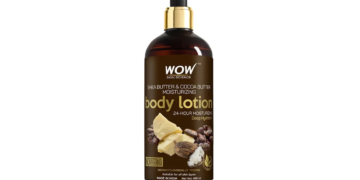Introduction
Eczema, commonly known as atopic dermatitis, affects 31.6 million people in the U.S. It is a disorder that results in inflation, cracks, dryness, irritation, and blisters sometimes to the skin. The “atopic” in atopic dermatitis refers to several conditions, including asthma and hay fever. Studies have found that one in 10 individuals develop eczema in their lifetime. It has also been found that about a quarter of U.S.A.’s children have been affected by the disorder. The condition forms due to genetics, components in your environment, food like dairy products, and stress.
Countries have recently legalized medical cannabis to treat nagging pain or symptoms caused by chronic conditions, including eczema disorder. There are also limited studies on the effectiveness of Cannabidiol (CBD), a chemical found in the Cannabis sativa plant. It treats people with eczema and other skin conditions like psoriasis. A study in 2014 found that hemp seed oil treats skin conditions like eczema, acne rosacea, and seborrheic dermatitis. The cannabis oil strengthens the human skin, making it more resistant to various infections. People also believe that cannabis has the therapeutic potential to heal skin wounds. One of the best places to get CBD oil is CBDistillery at CBD.co.
Five natural ways to make treat eczema
When we talk about the ways of treating eczema, there are plenty. But, our focus will be on the most imperative ones. These organic and natural remedies will not leave behind any side effects. But, these remedies fill your body with essential nutrients and minerals.
Let us now head on to some best and most effective remedies to get rid of eczema.
1. Homecare:
Several home care remedies improve your hygiene, which resultantly reduces the symptoms. One should take regular baths in lukewarm water if possible. Baths provide the skin with sufficient moisture. Putting some bleach in the water can also contribute to improvement. Bleach kills the bacteria on the skin surface. But you must note that bathing for some can make eczema worse by making the skin even dryer. Thus, the water should not be too hot or cold.
Avoid scrubbing the skin and wear cotton fabrics. Use gentle cleansers instead of soap, and try to moisturize your skin within 3 minutes of bathing. In a nutshell, home care with cleanliness and hygiene can improve your eczema symptoms.
2. Oils:
Since oils are lipophilic, they strengthen the outer layer of the skin by minimizing the water loss and thus moisturizing the skin. The National Eczema Association has proven that the antibacterial components of coconut oil, which is a natural moisturizer, reduce the bacterial and fungal effects on the skin, which reduces the symptoms. Choose virgin or cold-pressed coconut oil for applying, which improves the symptoms in 8 weeks.
Sunflower oil, extracted from sunflower seeds, has also been proven to protect the skin’s outer layer. It hydrates the skin and provides relief from inflammation when you put it on the skin after bathing is preferable.
3. Acupressure and Acupuncture:
A study based by Northwestern University’s Department of Dermatology concluded that half of the subjects were applied pressure at points by needles. In contrast, the other half continued with the regular medication. After four weeks, issues in the Acupuncture group with significantly more improvement in itching.
Acupressure, similar to acupuncture, uses fingers and hands to apply pressure. It is also very safe and affordable as compared to acupuncture. Though not as effective as acupuncture, acupressure is still beneficial as you can perform it at your home. For example, find a point on your left hand by bending it, then place your right hand on the crook of your elbow to feel the tip of the forearm muscle. Then, massage the point firmly for 3-4 minutes during deep breathing.
4. Change your diet:
Inflammation is an integral part of eczema. More than normal antibodies, people who suffer from eczema are prone to allergies. Determining the allergens must be done under the guidance of a nutritionist. Eliminating sources of allergens such as milk, eggs, peanuts, fish, soy, wheat, gluten, etc., from your diet one at a time will help you identify what is causing the allergic reactions.
You should avoid eating food rich in sugar and carbohydrates. However, if you are not allergic, you can include oily fish, seafood, nuts, seeds, etc., in your diet. Balancing your vitamin intake can also help in treating eczema. One can have food containing Zinc, Vitamin C, Vitamin E, and Vitamin D. All these are present in food items like dark chocolate, red meat, bright-colored fruits and vegetables, sunflower seeds, almonds, avocados, and vitamin D from the sunlight.
5. Resist the urge to scratch:
Scratching dry skin will worsen the condition of an eczema patient. If you can’t control the urge to scratch, you can try using anti-scratch sprays for itchy skin. You can also wear a pair of cotton gloves, so you don’t scratch yourself accidentally. Avoid heat and sweat on your body since it can cause itchy skin and a burning sensation. To avoid itchy skin, you can wet wrap the affected area after bathing and moisturizing. You can leave the wet wraps for several hours or overnight so that your skin can absorb as much moisture as it can. You can wear loose cotton clothes when the weather is hot.
Conclusion
Eczema is less of a problem for adults than for children. Adults may suffer from eczema caused by allergens or chemical irritants. Patients with eczema often complain that nothing they try seems to stop the itch. The only way to be relieved from it is to keep eczema under control.
Though the process is time-consuming through natural remedies, it is all worth it. Doctors can prescribe drugs to treat eczema; natural remedies are better than medical drugs if we see the long-term. At some point, the medical drugs will stop showing. Whereas when you use natural remedies, you give your own body a push to treat itself.










